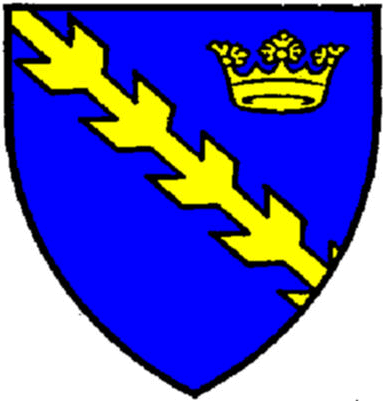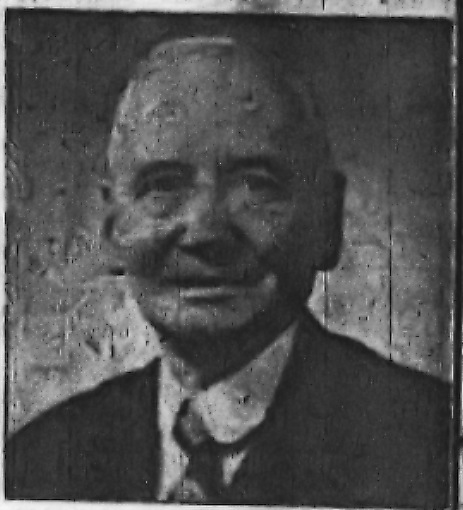
The Marland Family
Walter Wilson Marland
 From
a Weaver To A Seat in the Boardroom
From
a Weaver To A Seat in the Boardroom Science has made tremendous advances during recent years. Our standards of living and the conditions under which we live have risen enormously. We are much better fed, and our well being is catered for in a dozen ways by our Welfare State. We are told that the younger generation is stronger healthier, more virile than its predecessors.
But when you look round Colne and Nelson you can see members of the older generation who are still in fine shape without having had the advantage of all these benefits. You can hardly take a walk down any main street in the two towns without bumping into some 70 or 80 year old remarkable for his healthiness and apparent youthfulness.
Yet many of them tell of early struggles as members of large families, of how they worked 60 or 70 hours a week under conditions that would not be tolerated to day.
Hard work hasn’t harmed them, and I often wonder how I or other members of this somewhat pampered younger generation would stand up to some of rigours they have faced and whether we would be quote so spry at 70 and 80.
This week’s “ Man in Retirement ” is yet another example of a man who as thrived on hard work. He is 75-year old Mr Walter Wilson Marland. 38 Barrowford Rd . Colne. Lancashire. England. A well known townsman, a retired company director, who started out as a weaver, and is a keen and successful gardener.
In common with most other Lancashire boys of his time Mr Marland had an elementary education and then began to work as a half time weaver at the age of 11 on a wage of 3s a week. He was the third generation of his family to enter the cotton industry. His grandfather had been a reed maker, and his father started as clerk and became cashier for a Leyland firm he served for a remarkable period of 73 years.
While Mr Marland must possess a natural attitude towards textiles, his outstanding success as a student was also due to sheer hard grind and determination. After his day in the mill he travelled to Preston four nights a week to attend evening classes. He passed every Lancashire and Cheshire examination, gaining a full technological certificate.
He won a £20 pound prize for an album of fabrics woven and designed by himself, one of five to do so. He had one of the first scholarships to be given by the Lancashire County Council and, as a result spent two years at Manchester collage of Technology, finishing first in textiles for all England.
In order to save the 4p. Train fares travelling from Leyland to Preston, Mr Marland often cycled and sometimes walked to the technical school. Having a fairly strict upbringing, he knew little diversions from his labours .Up to the age of 20,when he was allowed to attend his first theatre during the Preston Guild celebrations, his only real entertainment had been the annual Sunday School Christmas party, and a half day trip to Blackpool.
After completing his studies Mr Marland held positions in two mills at Bolton before being invited to join the Colne firm of W and A Riley Ltd Holker Mill, as manager. He accepted the invitation, and when the firm was converted to a limited company, he became a director, a position he held until retiring in 1947.
In his long career, he saw many changes in the industry “When I started” he recalls, the only lighting in the mills was by fishtail gas burners, which progressed to gas mantles, and then electricity. Now it is florescent lighting. The working hours were 56 a week and when they knocked it down one hour they though the world was coming to an end, he says.
Speaking from his long experience, on the future of the industry, he says he believes there will always some textiles in Lancashire.
“The strongest and the most efficient firms will survive”. He predicts Depressions and slumps are nothing new to Mr Marland and his family. His father remembered the cotton famine due to the American civil war and he points out: Short-time working and difficult times in the industry are no new thing.
He is firmly of the opinion that the industry offers, “a splendid opening” for the young man of initiative who is not afraid of work. And for the working girl he believes there is no better job than that of a six or eight loom weaver.
Apart from his career Mr Marland has taken an active part in work of many organisations. Perhaps he best known as gardener having won scores of prizes for fruit, flowers and vegetables at Colne Horticultural Society shows. He was chairman of the society for a long period and though he no longer takes part in the shows, much of his time is still spent in the large garden not far from his home. It is one of his proud boasts that during the war there was never any need to buy a green vegetable for the house.
Associated with Colne Parish Church, he was at one time a side’s man and a Sunday school superintendent. He has been a member of Colne Golf Club and interested in amateur dramatics, he is president of Colne Dramatic Society and also of the Parish Players. A member of the Conservative Club, he served as Conservative town councillor for three years, and is the chairman of the Colne Youth Employment Committee. He also has business interests.
He is a successful man; of that there can be no doubt. And he owes that success to his main interest in life sheer, hard work.
collected from a local newspaper by Geoff Marland
| Webmaster: Andrew Gray |
Edited: 18 December 2015 |